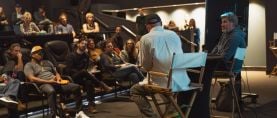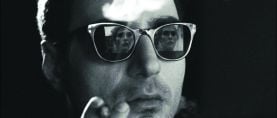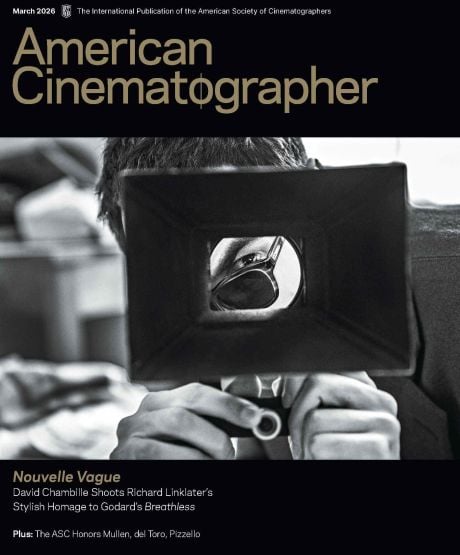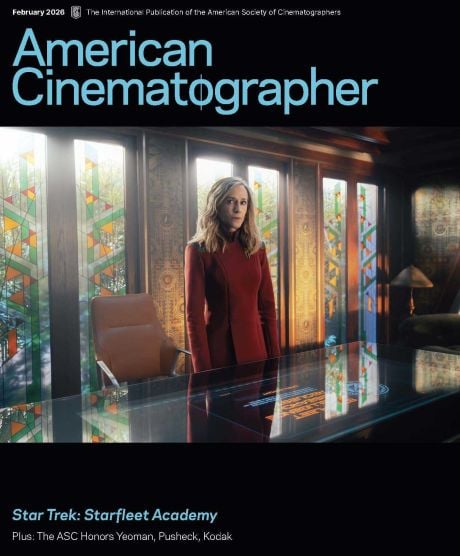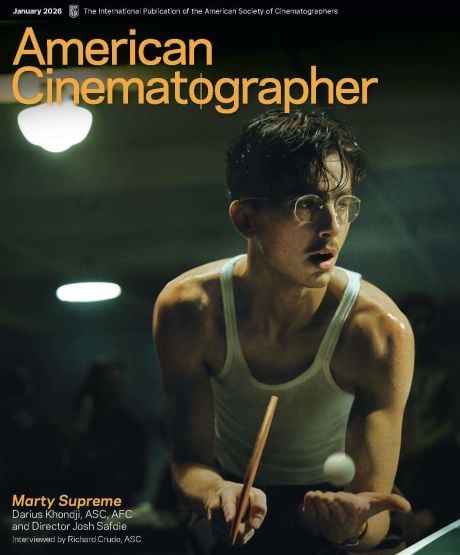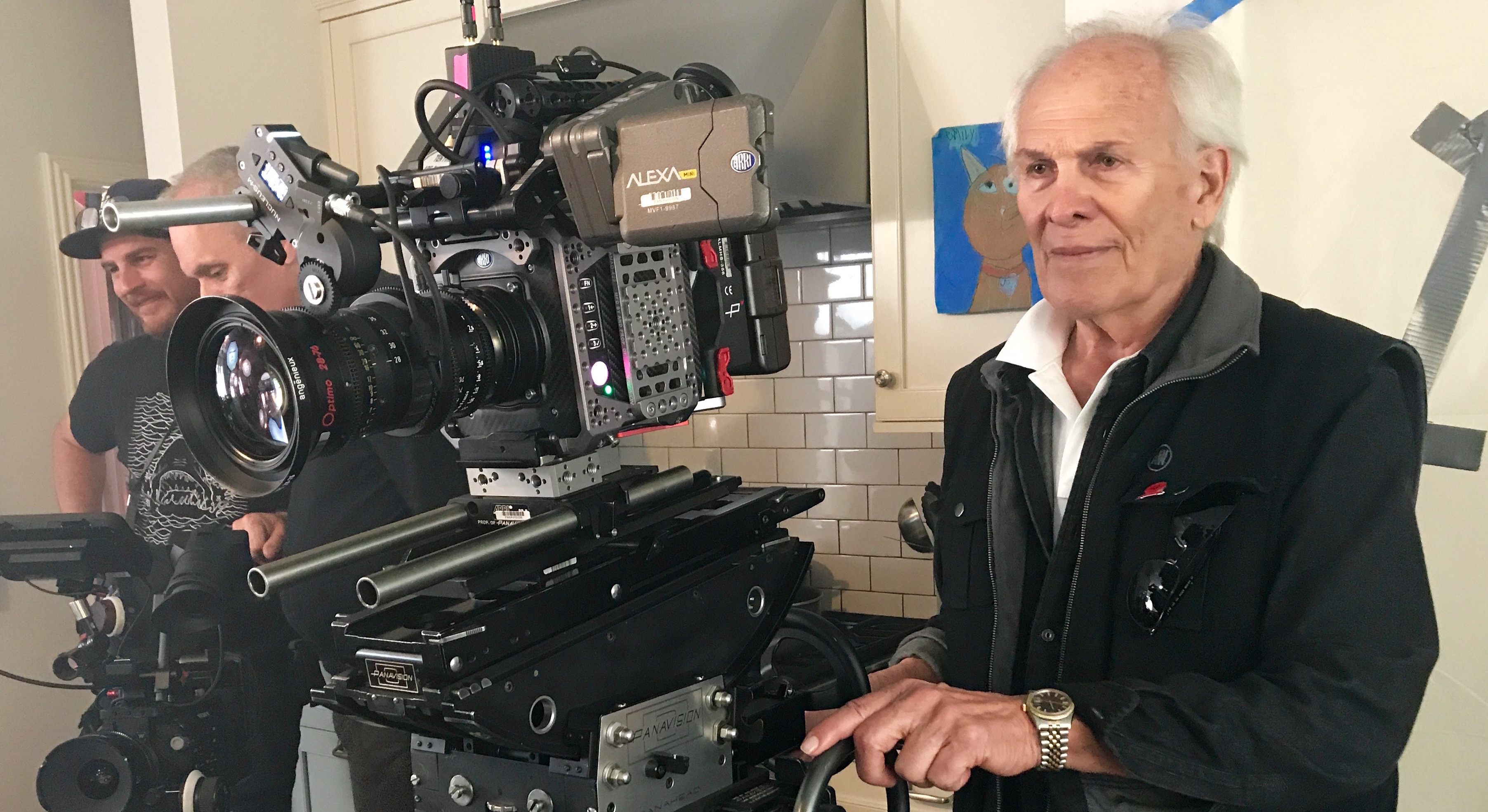
Steven Shaw, ASC Supports Easterseals Disability Film Challenge Project
The short Parents Inc. wins national competition recognizing the experiences and creativity of children facing real-life challenges.
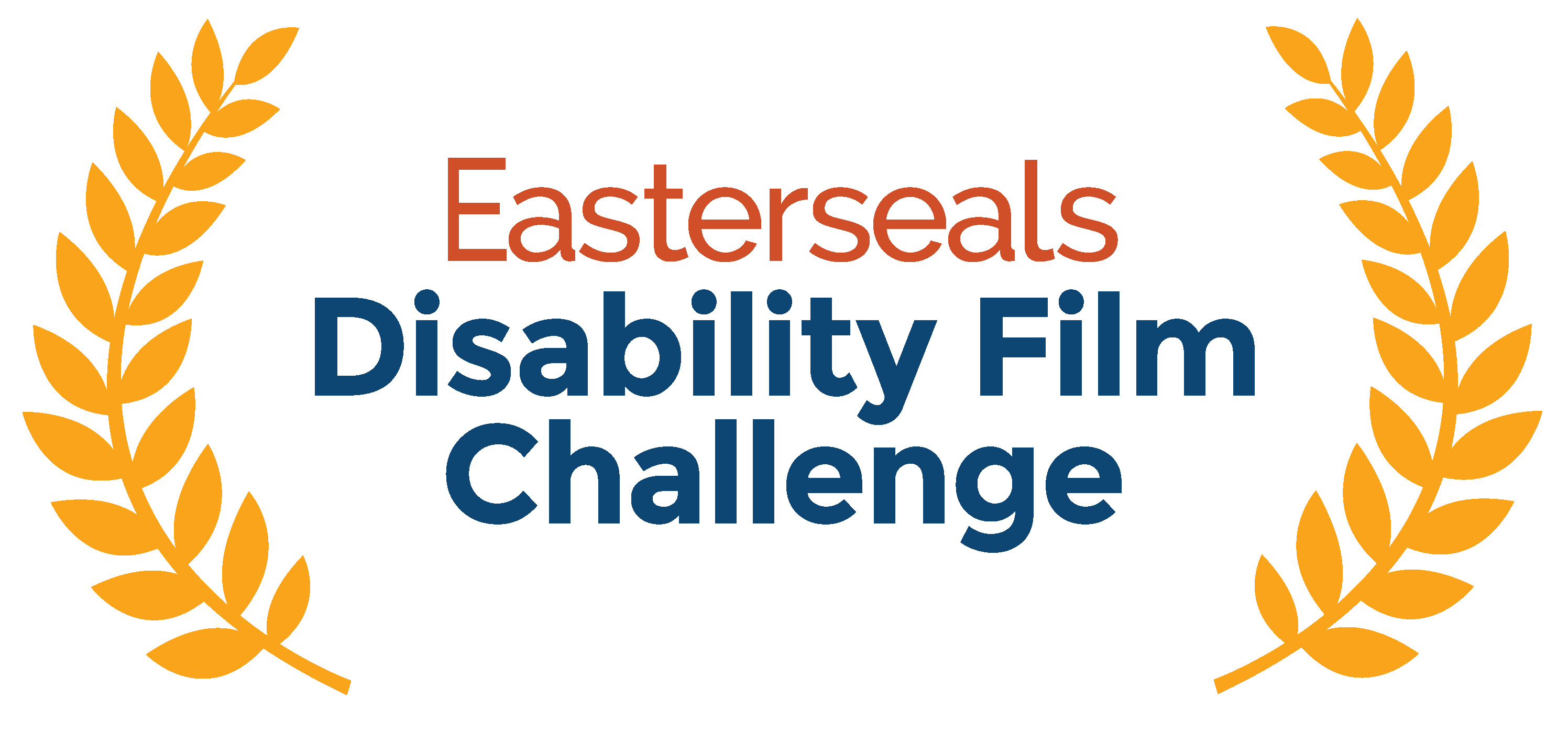
“An editor friend of mine and his wife — David and Amy Hopper — have a daughter named Emily,” begins cinematographer Steven Shaw, ASC when asked how he became involved with the short film project Parents Inc. “I’ve known them for quite a while now; just wonderful people. When Emily was 11 months old, she had to have both of her legs amputated below the knee in order to save her life; she had contracted a MRSA infection. She also lost fingers on both of her hands. She’s now 16. And, last year, she and her mom and dad shot a little project — I think with just an iPhone — and submitted it to the Easterseals Disability Film Challenge competition. And it was pretty good, but failed to
get nominated for any of the Easterseals awards. So this year they wanted to try again, but, also, they wanted to step things up, so I volunteered to shoot it for them. Already on board was director Harold Zwart.”
And Shaw brought plenty to the table — with decades of experience as a camera assistant, operator, cinematographer and director, all of which helped prepare him for the stress of a rapid-fire project such as this.
Founded in 2014, this year’s Easterseals Disablity Film Challenge had 71 short-subject entries from three countries (U.S., U.K. and Canada). As per Challenge rules, the competition’s possible themes were announced on April 4, with Emily happy to work in the science-fiction genre. With just one day to write, cast and scout locations, the single shoot day took place on April 6, with the fully edited project submitted the following day at 6:00 p.m.
A 55-hour turnaround.
In Parents Inc., a girl living in a near-future world (Emily Hopper), struggles with the realities being a teenager with unreasonable parents (Paul Lasa and Emily Behr). And while her disability is not the focus of the story, the subtext suggests that such a challenge is not always the only hurdle in one’s life.
You can watch the completed short here.
As Emily relies on prosthetics, Shaw thought it would be essential to build her morning ritual of seeing her walk on her nubs and putting them on into the script — seen but not discussed, as her character is far more concerned, for example, with such things as a neighbor boy’s invite to a party and her dad’s incompetence at making toast. “It’s there, but this story is about the character’s interests, thoughts and feelings, not the disability,” Shaw says.
Of course, Shaw knew he would need help in telling this story. “I had Emily’s mom take a photo of the two of us,” he says. “It shows her prosthetic legs and hands — the extent of her condition due to this illness. And I showed that photo to ASC associate members who I hoped might be able to help us get this project done.”
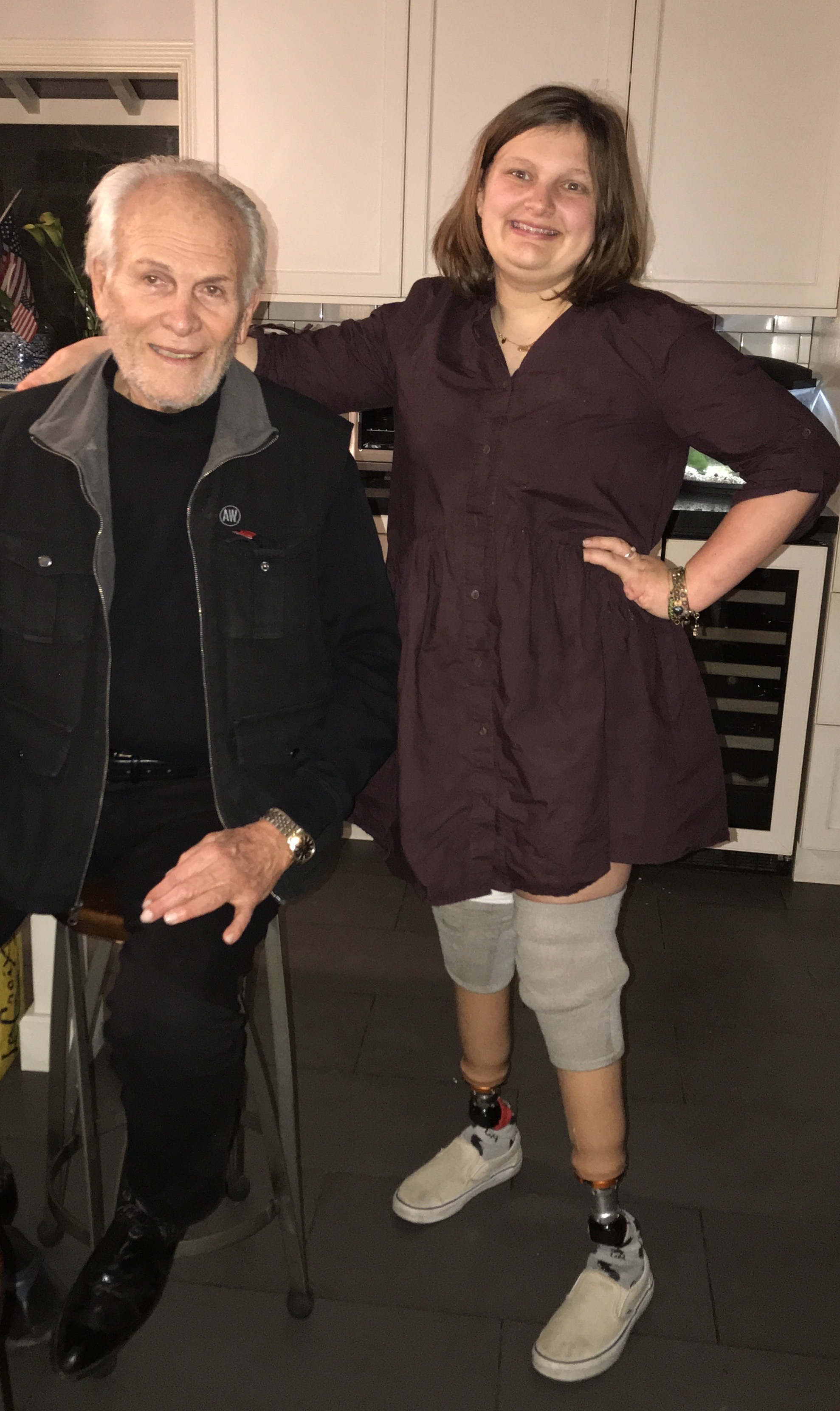
One of the first friends he approached was Kym Snyder, the CEO of Panavision and an ASC associate member. “I showed her the photo and asked if I could borrow a camera for one day,” the cinematographer remembers. “She said, ‘Absolutely, what do you want?’ and we were off.” With an Arri Alexa Mini, Panavision lenses and a geared head in tow, Shaw received lighting and grip support from stage manager Huston Tronnes at Mole-Richardson, a hazer from Emily Stadulis at Rosco Laboratories, additional lighting gear from Samy’s CinemaWorks and a dolly from ASC associate Frank Kay at J.L. Fisher. “With Steadicam operator Ricardo Mejia, Jr. aboard and ASC associate member Mark Bender from Samy’s volunteering to do some drone work for us and camera operator Keith Jeffies, we had quite a nice little camera department for our one-day shoot.” Also joining the team was sound engineer Ricardo Mejia, Sr.
Seeking inspiration for a visual approach to their futuristic short, “the director and I referenced one of our favorite sci-fi movies, Blade Runner [1982], photographed by Jordan Cronenweth, ASC.
“What I took from it was the mixture of color temperatures,” Shaw describes. “Basically, I was shooting at 3200K for or interiors while the daylight coming in remained uncorrected [5600K], so it went a bit apocalyptic blue, and we carried that into the rooms with our lighting and some smoke effects, creating a nice sci-fi atmosphere.”
“But this is not to say we were trying to recreate what Jordan did on Blade Runner,” Shaw cautions. “In a situation like this, with so little time to shoot, no prep and no rehearsals, it just helped to have a strong reference to get everyone on the same page, making the look reminiscent of that [1980s] period and also establishing the sci-fi genre with certain visual cues to support our story.”
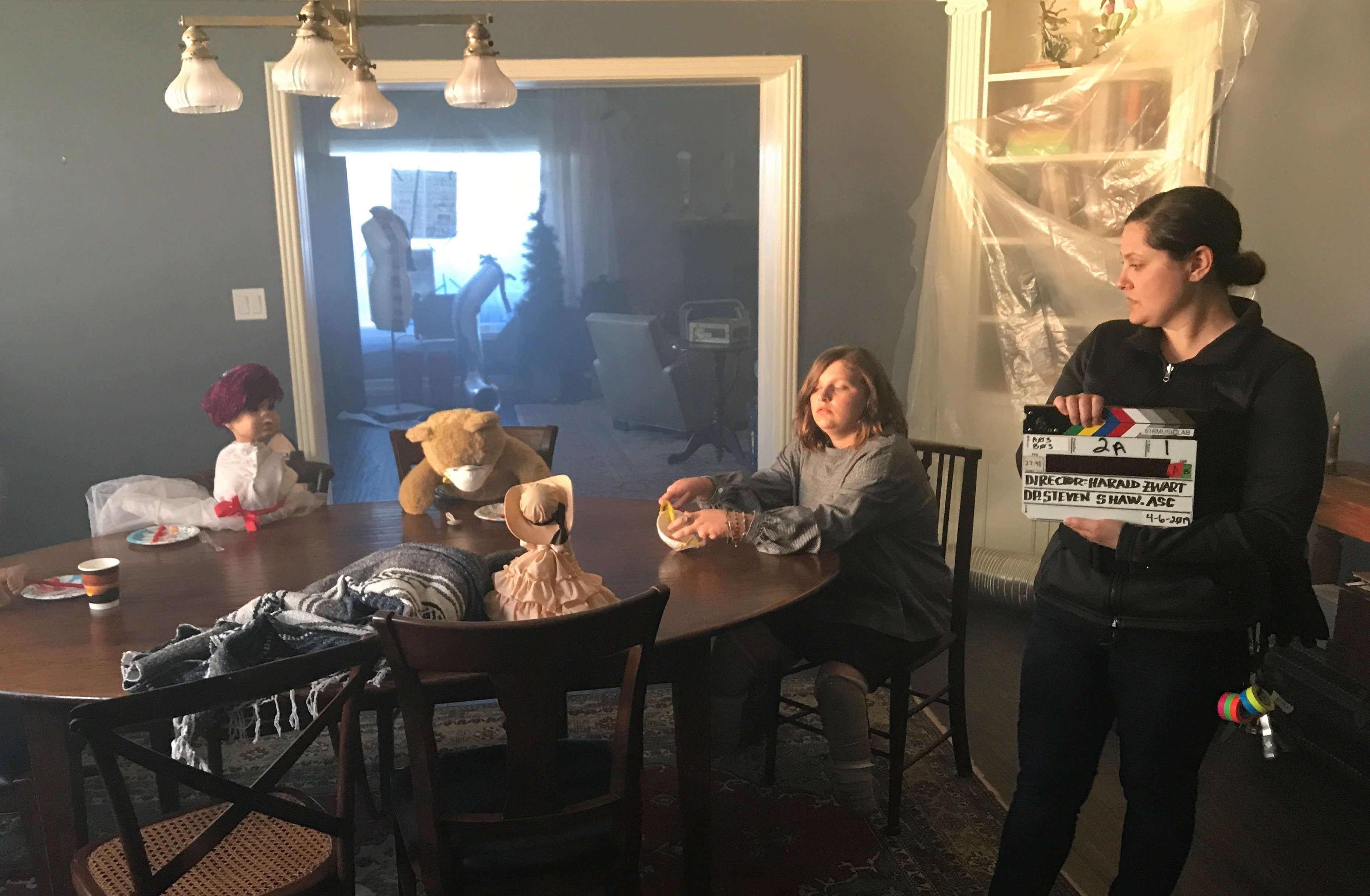
In addition to his lighting gear from Mole-Richardson and Samy’s, Shaw relied upon his favorite piece of personal kit: “I have several cases of Dedolights that I take with me everywhere. I think they’re the best small lights in the world. I got them from Dedo Weigert himself when I was shooting in Budapest
20 years ago. They’re always with me and I’ve used them on countless shows.”
Employing the Dedos as interior accent lights, Shaw primarily used Leko Source Four ellipsoidal units to augment his daylight. And he also took advantage of their primary location, the Hopper family’s own home, which “was truly beautiful, with dark wood, a lot of windows, no white walls and textures that made it visually interesting. And, again, that was important, because our entire shoot would take place there and Emily was comfortable in her own home.”
Brought aboard by producer Katelyn Cox, colorist Elliot M. Smith helped complete the work. “He did an excellent job,” says Shaw. “He saved our butts — the shoot was on a Saturday, David started cutting it, and Elliot was aboard the next day, shepherding things through post.”
While Parents Inc. benefitted from an advantageous Hollywood connection, Shaw is clear that “Easterseals wanted to make sure that the children involved in these projects were central to their creation — in the writing and acting, especially — and that parents and other adult collaborators helping them were not completely talking over that process. Emily was absolutely our inspiration, and she was part of the entire process. And I’m just happy that me and my
gang of volunteers could help make it happen for her.”
Shaw notes that the version of the film embedded above is what was submitted into the Easterseals competition — the result of two days of work. A more finished version is being completed for other competitions and festivals. “We had a couple visual effects that had to be done,” he says, “but I think it’s important that people see what we were able to accomplish under a very tight deadline.”
Parents Inc. would go on to win the 6th Annual Easterseals Disability Film Challenge, announced during a ceremony held at the Sony Pictures lot on May 9 with more than 200 people in attendance.
“On that night at Sony when Emily’s short won the Best Film award, I will never forget witnessing her explosion of joy and happiness,” Shaw describes. “She took the mike from her mom and screamed, ‘We’re going to the Oscars!’
“Since that night, Emily has gone on to win Best Young Actress Award at the Los Angeles Film Awards.”


